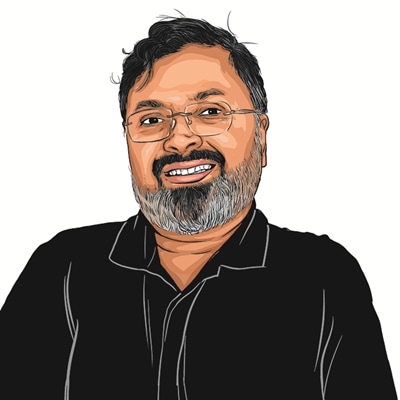Opinion Devdutt Pattanaik writes: Religion and the illusion of equality
The point is — it feels great to be treated as special in crowded spaces. That is why even myths of heaven and hell have levels
 Society creates scales to enable measurement and comparison. (Express photo by Amit Chakravarty)
Society creates scales to enable measurement and comparison. (Express photo by Amit Chakravarty) That God treats all humans equally is an Islamic and Christian belief, not a Hindu, Buddhist or Jain one. Certainly not a Chinese or Japanese one. This idea of equality shaped the Enlightenment discourse and gave rise to ideas like nation-state and individualism. French revolutionaries spoke of equality and freedom in the same breath. It spread to all corners of the world through colonial forces and is now considered a global discourse. Equality sounds good — in theory.
Hinduism has been accused of amplifying inequality using caste. Even in urban ecosystems, where caste is not prioritised, we see amplification of class divides in Hindu temples and festivals. The rich, the powerful, the popular, the connected get easier access to the deity enshrined in a temple or a pandal. This has been amply evident in the Ganesh celebrations in Mumbai in recent years. If you point this out, you become a liberal person, one who frowns upon inequality. Never mind the fact that the opinion makers often use their own wealth, power, celebrity status and networks to get easy access to crowded shrines. The VIP line. The VIP pavilion.
There is generally no segregation of women in Hindu temples. Nothing on the scale that is visible in Muslim communities. In the mosques and on the streets, during Friday prayers, and during Eid, we see images of hundreds of men. Women, when seen, are hidden behind masks. In recent times, the masks are becoming more and more homogenous across Islamic nations that wish to stamp out local differences. Thus all women appear equally masked.
Buddhism is believed to be egalitarian. But then, as many neo-converts have noticed, it privileges the male monk over the nun. There is no equality between the many Buddhist sects.
In Bhutan, the happiest nation in the world, only the king is allowed to wear a yellow stole, and the people are told what clothes they must wear in public. So they all appear as belonging to a single group — and distinguish themselves from the non-Bhutanese.
At celebrity weddings of the rich and famous where parties go on for months, segregation is clearly established by who is invited to which party. Bands on wrists tell guests which areas they can access. The more famous you are, the richer you are, the closer you get to the host. You get access to private lounges, where special food is prepared for the special people. But since this is a private function, not a religious one, this is acceptable. Like service lifts and staff toilets in building societies. We can rationalise inequality by using words like efficiency.
The idea of equality has played a key role in shaping societies since the World Wars. People have challenged oppression based on race, caste and gender. Women know they deserve the same opportunities as men. LGBTQIA+ people seek the same rights as their heterosexual counterparts. Black men and women demand the same opportunities as White folks in America.
Positive discrimination is aimed at reducing inequality in society. Increasingly, however, the equality discourse is being challenged — we now have movements that reject the idea of merit, that challenge common understandings of gender. People are wondering why pride parades are being blocked in Muslim neighbourhoods in Europe and America, why tribal communities are expected to follow the practices of dominant communities around the world. Not every tribe believes in Judgement Day.
Human beings are competitive. And competition implies inequality. There is always someone higher and lower than us. Society creates scales to enable measurement and comparison. And we would rather be up than down. We want our children to go to better schools. We want to live in better neighbourhoods. We want our Instagram posts to get more likes. The rich want to feel rich, the powerful want to feel powerful, the famous want to feel powerful, and the only way to do that is to get a spot ahead in the queue. This applies to work, life and religious spaces. We can rationalise this using politics and economics, or spiritual ideas like karma. The point is — it feels great to be treated as special in crowded spaces. That is why even myths of heaven and hell have levels.
Pattanaik is a writer and mythologist






